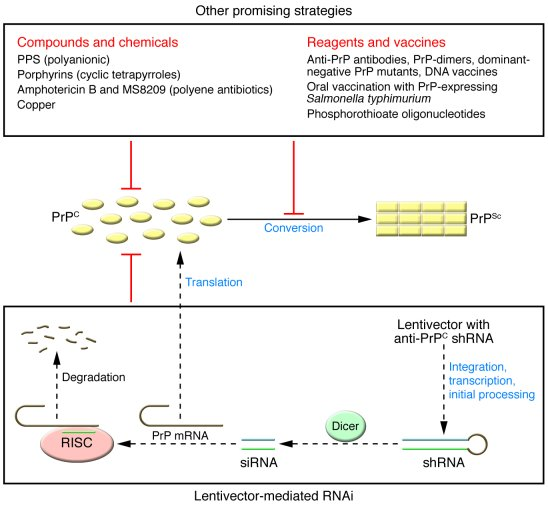Youth well-being is an increasingly critical issue that demands our attention, particularly in light of recent findings from the Global Flourishing Study. This landmark research highlights the intricate relationship between youth mental health and socioeconomic factors, challenging the notion that financial wealth directly correlates with happiness. As we explore the findings, it’s evident that well-being and relationships play a pivotal role in fostering a thriving youth population. The data illustrates significant disparities in flourishing among youth across various nations, urging stakeholders to reconsider how investments in our young people are aligned with their overall well-being. Understanding these dynamics is crucial as we strive to create environments that not only support financial stability but also promote mental and emotional health for the future generations.
The overall state of well-being in young individuals is an urgent topic that encompasses various aspects of their lives, including emotional health, social connections, and personal fulfillment. Recent research has unveiled significant insights into how youth are faring across different regions, emphasizing the importance of holistic approaches to flourishing. Expressions like youth mental wellness and emotional prosperity resonate with the core idea that a fulfilling life extends beyond monetary success. Relationship quality and support systems are crucial in cultivating happiness, bridging the gap between financial and emotional well-being. As we delve deeper into these discussions, it becomes increasingly clear that nurturing the potential of our youth is essential for a thriving society.
The Link Between Financial Wealth and Happiness
Contrary to popular belief, the Global Flourishing Study reveals that financial wealth does not directly correlate with happiness and overall well-being. In this comprehensive analysis involving a diverse set of countries, researchers found that nations with middle-income levels, such as Indonesia and Mexico, ranked higher in flourishing than wealthier nations like Japan and the United States. This raises important questions about the true nature of happiness and success in life, suggesting that while financial stability is a necessity, it may not lead to the meaningful relationships and emotional well-being that contribute to a fulfilling life.
This phenomenon suggests that economic prosperity can sometimes isolate individuals, rather than bring them closer together. For instance, respondents in Japan, despite enjoying a high standard of living, often reported feelings of loneliness and a lack of deep friendships. This highlights the need for a more holistic approach to well-being, where financial success should be balanced with efforts to foster strong social connections and community ties that enhance happiness.
Youth Mental Health and Well-Being
The findings from the Global Flourishing Study indicate a troubling trend regarding youth mental health, particularly in the United States. As youth experience a significant decline in flourishing—characterized by lower happiness and well-being—the need for targeted mental health initiatives for young people becomes increasingly urgent. Factors such as financial insecurity, social isolation, and the challenges of modern life contribute to deteriorating mental health among youth, raising concerns about their future and societal progress.
Youth well-being is not merely a product of education or economic opportunity; it is deeply tied to emotional health and relational dynamics. Strong familial ties and supportive friendships are crucial for nurturing resilience and allowing young people to thrive. To address the mental health crisis among youth, communities must emphasize developing supportive environments that foster emotional growth, promote social interactions, and help nurture strong, healthy relationships.
The Importance of Relationships in Flourishing
The Global Flourishing Study highlights the critical role of personal relationships in defining human well-being. Respondents who reported having strong maternal and paternal relationships during childhood were more likely to experience higher levels of flourishing as adults. This underlines the idea that financial wealth is less impactful than the quality of relationships in shaping lifelong happiness. In many cultures, including those represented in the study, community and family bonds are significant contributors to personal fulfillment.
Furthermore, the study found a notable correlation between religious participation and flourishing. Regular attendance at religious services was consistently associated with enhanced emotional well-being and social connectedness, regardless of economic conditions. This suggests that nurturing relationships through community engagement plays a vital role in sustaining a flourishing society, reminding us that investing in interpersonal connections can yield profound effects on individual and collective happiness.
Understanding Flourishing Across Different Cultures
The Global Flourishing Study underscores the diversity of experiences across different cultures in relation to happiness and well-being. By collecting data from over 203,000 individuals in 22 countries, the study provides a rich perspective that challenges traditional notions of what it means to flourish. Respondents from countries like Indonesia and Mexico demonstrate that factors like community support and spiritual fulfillment often trump financial indicators in contributing to life satisfaction.
This research prompts us to reconsider how we define success and societal progress in a global context. Instead of solely measuring financial prosperity, incorporating cultural values and relational dynamics into the discussion allows for a more nuanced understanding of flourishing. Recognizing and respecting these cultural differences is essential for developing policies and programs that genuinely enhance the well-being of people across the globe.
The Role of Childhood Experiences in Adult Well-Being
The findings from the Global Flourishing Study significantly emphasize the impact childhood experiences have on adult well-being. It has been established that supportive familial relationships and positive childhood health contribute immensely to flourishing in adulthood. For instance, children who grow up in nurturing environments report higher levels of happiness and life satisfaction as they mature. This interconnectedness of childhood and adult well-being raises important questions for future societal investments in youth education and mental health.
Moreover, the study identifies common patterns across nations that showcase how good parenting and strong familial structures lead to better outcomes for youth. Policymakers and educators must prioritize creating support systems that foster healthy childhoods. By focusing on improving childhood experiences, society can pave the way for flourishing adults, ultimately leading to a healthier, more vibrant future.
Longitudinal Insights into Human Flourishing
The longitudinal aspect of the Global Flourishing Study allows researchers to track changes in flourishing over time, shedding light on the evolving nature of happiness and well-being. As the study plans to resurvey participants annually, it will provide critical insights into how various factors—such as economic fluctuations, social changes, and global crises—impact human flourishing. Understanding this trajectory can help refine approaches to enhancing individual and collective well-being.
The predictive value of longitudinal data is invaluable when assessing the long-term effects of youth well-being initiatives. By tracking subjects over several years, researchers can discern patterns that correlate with declines or improvements in flourishing. This dynamic approach encourages ongoing evaluation and adaptation of methods intended to promote well-being, ensuring that strategies remain relevant and effective in an ever-changing world.
Challenges of Economic Development on Well-Being
The Global Flourishing Study raises critical concerns regarding how economic development can sometimes compromise well-being, particularly in wealthy nations. As countries prioritize financial growth, there can be unintended consequences such as social disconnection, increased stress levels, and a decline in community relations. This duality creates a complex landscape where economic success does not always equate to personal happiness and life satisfaction.
It becomes essential for policymakers to consider the balance between fostering economic growth and nurturing a thriving society. By integrating measures of well-being into economic planning, countries can create holistic development strategies that prioritize both financial prosperity and the emotional health of their citizens. Acknowledging that wealth is not a direct measure of happiness allows for more comprehensive models of sustainable development.
Spiritual Dynamics and Flourishing in Society
The findings suggest that spiritual dynamics play an integral role in fostering flourishing within communities. Regular religious participation is associated with positive outcomes in mental health and relational well-being, highlighting the importance of spiritual paths to flourishing. In times of economic hardship or social upheaval, spiritual communities provide not only support but also a sense of purpose and belonging, crucial components of well-being.
As societies navigate the complexities of modern life, the integration of spiritual frameworks with holistic approaches to well-being may provide deeper insights into what constitutes a flourishing life. Encouraging a societal shift that honors spiritual diversity and personal beliefs could ultimately enhance emotional resilience and community bonds, leading to a greater overall sense of fulfillment.
Future Directions for Youth Investment
Given the alarming trends observed in youth well-being, the Global Flourishing Study calls for an urgent reevaluation of investments in young people’s future. With rising concerns about mental health and social isolation among youth, now more than ever, societies need to allocate resources to mental health programs, educational initiatives, and community-building activities that cater specifically to young people.
Investing in youth also means fostering environments that promote social connections, mentorship opportunities, and emotional intelligence. These are critical for nurturing resilience and promoting flourishing attitudes among future generations. By making conscious investments in the well-being of youth today, societies can ensure a brighter, more holistic future, where financial wealth supports rather than detracts from personal happiness.
Insights from the Global Flourishing Study on Well-Being
The Global Flourishing Study provides invaluable insights into the complex relationship between wealth and well-being. While financial stability remains a significant factor for many, this extensive research illustrates that it is only one piece of a much larger puzzle. Well-being encompasses various dimensions, including health, relationships, and personal fulfillment, indicating that societies must adopt more comprehensive measures when assessing their overall flourishing.
The implications of these findings are profound, suggesting that economic policies should be revisited and reformed to prioritize mental health, community ties, and relational well-being. This understanding could lead to developing better-targeted policies that are more attuned to the realities of daily life for many individuals, ultimately promoting a more profound sense of flourishing in the long term.
Frequently Asked Questions
What does the Global Flourishing Study reveal about youth well-being?
The Global Flourishing Study highlights significant concerns regarding youth well-being, indicating that young people today may be flourishing less than older generations. It suggests that societal pressures and changing patterns are impacting mental health and overall happiness, stressing the importance of support systems and community engagements for youth.
How does financial wealth correlate with youth mental health according to recent studies?
Recent findings indicate that financial wealth does not guarantee youth mental health or well-being. The Global Flourishing Study shows that many middle-income countries rank higher in flourishing compared to wealthier nations, emphasizing that relationships, community, and overall happiness are critical aspects of youth well-being irrespective of financial status.
In what ways do well-being and relationships impact youth flourishing?
Well-being and relationships are fundamental to youth flourishing. The Global Flourishing Study found that having strong maternal and paternal ties, as well as healthy friendships, correlates with higher levels of happiness and satisfaction in young adults. These relationships foster a sense of community and belonging essential for optimal youth well-being.
What are some indicators of flourishing among youth in the Global Flourishing Study?
Key indicators of youth flourishing identified in the Global Flourishing Study include health, happiness, meaningful relationships, character traits, and financial security. The study emphasizes that a supportive environment, strong interpersonal connections, and overall mental health are vital for the flourishing of young individuals.
How do cultural differences affect youth well-being as shown in the Global Flourishing Study?
Cultural differences significantly affect youth well-being. The Global Flourishing Study ranks various countries based on their youth flourishing, showing that communities with robust social ties and supportive environments tend to promote better mental health and happiness among youth, regardless of their economic status.
What does the study say about the relationship between spiritual well-being and youth mental health?
The Global Flourishing Study suggests a positive correlation between spiritual well-being and youth mental health. Regular participation in religious or spiritual activities was associated with higher levels of flourishing among youth, indicating that such practices might contribute to better resilience and emotional stability.
Why is investing in youth well-being essential according to the findings of current research?
Investing in youth well-being is crucial because lower levels of flourishing can lead to long-term societal challenges. The Global Flourishing Study raises alarms over the declining mental health of youth, suggesting that proactive measures are necessary to foster supportive environments and promote better life outcomes for future generations.
| Key Findings | Economic Status | Youth Well-Being | Global Context | ||
|---|---|---|---|---|---|
| Wealth does not guarantee youth flourishing. | Middle-income countries rank higher than wealthy ones in youth well-being. | About 203,000 respondents across six continents participated in the study. | |||
| The study led by Harvard found troubling trends in U.S. youth well-being. | The U.S. ranked low (15th) in youth well-being without financial indicators. | Indonesia topped the well-being rankings regardless of wealth. | |||
| Flourishing patterns have shifted from U-shaped to J-shaped as youth report lower satisfaction from late teens to 20s. | Countries like Japan, despite wealth and longevity, report poor relational well-being. | The study shows the importance of familial and community relationships over material wealth. | |||
| Key factors for flourishing include good childhood health and relationships. | Continuing neglect of youth well-being may hinder future societal progress. | Future research will delve deeper into the cultural nuances of flourishing. | |||
Summary
Youth well-being is a pressing issue highlighted by the latest research, which indicates that financial status alone does not equate to overall flourishing among young people. The study implies that enhancing the quality of relationships and community ties is crucial for fostering well-being. As policymakers and communities examine the results, it becomes evident that investments focused on the emotional and social needs of our youth could lead to substantial improvements in their overall happiness and life satisfaction.




